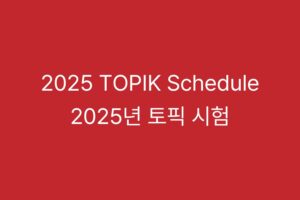
Welcome! Succeeding in business in Korea goes beyond mere professional knowledge and skills; it also significantly depends on understanding and practicing proper business etiquette in korea. “Business Etiquette In Korea: 5 Useful Rules To Succeed” aims to introduce the foundational etiquette and interaction styles required for successful business undertakings in Korea. This guide is vital for building and maintaining business relationships within the Korean corporate landscape.
Korean business culture places a high emphasis on mutual respect and courtesy, evident in all aspects of business interactions, from exchanging business cards to attending meetings and business dining. Thus, grasping these cultural nuances and applying them appropriately is crucial for fostering successful business relationships in Korea.
This post will outline the essential etiquette and practical methods for navigating the business environment in Korea. By adopting these strategies, you can better adapt to the Korean business setting and maximize your business opportunities in Korea. Let’s explore the 5 useful rules that will aid in your journey to business success in Korea.

The Korean business culture places a high emphasis on mutual respect and etiquette, which permeates through all business interactions and communications. Understanding and practicing these cultural norms is key to building successful business relationships in Korea.
Use of Titles and Honorifics:
In Korea, showing respect through the appropriate use of titles and honorifics is fundamental in business settings. The use of titles and honorifics extends beyond simple politeness; it reflects the hierarchical nature of Korean society and business.
The correct use of titles and honorifics in the Korean business environment plays a crucial role in facilitating smooth relations and fostering an atmosphere of mutual respect. Therefore, understanding and appropriately applying these cultural nuances is a key element of business success.

2. Business Card Exchange Etiquette:
Exchanging business cards is a ritualistic practice in Korea. Present and receive cards with both hands, and take a moment to review the card you’ve received respectfully. This gesture indicates your acknowledgment and respect for the person you’re meeting.
3. Punctuality for Meetings and Appointments:
Timekeeping is taken very seriously in Korean business culture. Being punctual for meetings and appointments shows respect for the other party’s time and is considered a basic yet crucial aspect of business etiquette.
4. Etiquette During Business Meals and Social Gatherings:
Business meals and social gatherings are seen as vital for relationship building. During these occasions, follow the lead of your Korean counterparts in terms of ordering, starting the meal, and drinking. Offering to pay the bill or contributing shows goodwill, although often the senior member or the host will cover the expenses.
5. Conflict Resolution and Providing Feedback:
In cases of disagreement or conflict, the approach in Korea leans towards seeking consensus and harmony rather than confrontation. Offering constructive feedback in a respectful manner and being open to receiving it demonstrates professionalism and respect for business norms.

Applying these tips in real-life business scenarios can significantly impact your success in Korea. For instance, correctly exchanging business cards at your first meeting can set a positive tone for future interactions. Arriving early for meetings and carefully listening to and addressing your Korean colleagues by their proper titles not only shows respect but also fosters a cooperative working environment.
By embracing these rules of Korean business etiquette, you will be well-equipped to navigate the complexities of Korean corporate culture, build lasting relationships, and achieve success in your business endeavors in Korea.

In the fast-paced and highly respectful business environment of Korea, understanding and adhering to the local business etiquette can significantly influence your success. The insights provided in “Business Etiquette In Korea: 5 Useful Rules To Succeed” offer a foundational guide for navigating these waters with respect and professionalism. By embracing the principles of proper honorifics usage, mastering the art of business card exchange, punctuality, etiquette in business dining, and effective conflict resolution, you position yourself not just as a respectful participant but as a potential leader in the Korean business scene.
These practices do more than just help you fit in; they enable you to build lasting, meaningful business relationships that are based on mutual respect and understanding. As you continue to engage with the Korean business community, remember that these etiquette guidelines serve as your bridge to not only professional success but also to deeper cultural immersion. May your journey in Korea’s business world be both prosperous and enriching.
‘1:1 비즈니스 한국어 수업’은 한국 비즈니스 환경에서 필요한 다양한 업무 기술을 배울 수 있는 개별 수업입니다. 이 수업은 이메일 작성, 기획보고서 및 결과보고서 작성, 회의록 작성, PPT 발표 기술 강화 등 다양한 업무 상황에서 필요한 언어와 기술을 강화합니다. 또한, 한국 비즈니스 문화에 대한 이해와 회사에서 자주 사용되는 용어 및 문서 처리 방법 등을 학습하여 학습자의…
Additional Information:Resources at ‘Chapter Korean’
The ‘Chapter Korean’ team has extensive experience in TOPIK group classes, self-introduction editing, and business Korean. The expertise of the Chapter Korean team greatly contributes to helping students improve their language and document writing skills, which are essential for employment in Korean companies.
Classes related to this special lecture can be found on the Chapter Korean official website and provide additional tips and guidance on writing personal statements and resumes. This website is a platform where students can easily access and utilize various materials and information necessary for employment in Korean companies, and will be of great help in continuous learning and preparation. You can also receive a lot of Korean information and self-introduction feedback through the JAEM Korean app.






주식회사 챕터코리안, 대표 김대광 | 사업자등록번호 : 471-88-02872 | 통신판매업신고번호 : 제2024-서울중구-1387호| 서울 퇴계로 36길 2 812호
대표번호 : +82-10-2981-4359 | 이메일 : [email protected]
이용약관 | 개인정보처리방침 | Cookie Settings
Copyright 2023 © ChapterSeoul